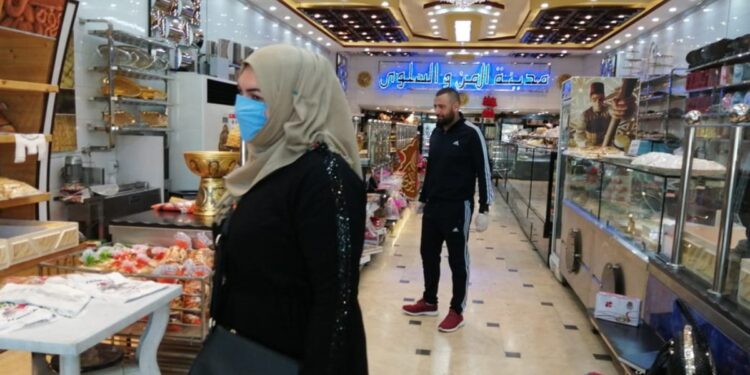In a new approach to strengthening the local product, the Iraqi cabinet decided at its session on April 8 to extend the work of the decision to ban the import of pastries, juices and sweets for an additional 6 months.
The decision also included the imposition of customs duties by 20% on imported soap, in a move aimed at supporting the local industry and reducing random import.
The local product is able to compete
Rashid Al -Saadi, a spokesman for the Baghdad Chamber of Commerce, stressed that the Iraqi local producer has sufficient ability to cover the needs of the market, but rather outperforms many imported products in terms of quality and adherence to specifications.
He explained in his speech to “Al -Jazeera Net” that the decision to ban import includes wide types of juices and pastries that enter Iraqi markets without adhering to local and international standards, while Iraqi factories are committed to these standards.
Al -Saadi added that the production capacity of the current Iraqi factories is not limited to meeting the local demand, but also extends to export to prestigious global markets such as Russia, the United States and the Gulf states, where Iraqi products are widely accepted.
He pointed out that foreign products enter the market at low prices, but with low specifications, which constitutes a real threat to consumer health, especially because of the preservatives that may turn into carcinogenic materials when long storage, which contradicts Iraqi health and standards laws.
Al -Saadi denied the existence of suspicions of corruption in the decision, stressing that the primary goal is to protect the national industry, and suggested that the alternative to the ban is to impose high customs duties that guarantee fair competition between the local and imported product.
He also pointed out that neighboring countries impose high fees on Iraqi exports of up to 200%, while large discounts are granted to the products exported to Iraq, even if they are poor quality, which creates unequal competition that harms the national industry.
Government plans to enhance the food industry
For his part, economist Ahmed Al -Ansari stressed the importance of taking effective measures to develop the juice and pastry industry in Iraq, noting that the decision of the Council of Ministers is in the context of implementing the Law of Product Products.
He explained that the vote came based on the recommendation of the Ministerial Council for the Economy issued on March 17, 2025, which called for an extension of the ban on an additional 6 months.
Al -Ansari added that the government agreed to provide soft loans and with low benefits to establish new industrial projects, in coordination with the central bank, as well as explicit directives from ministries such as finance, public works and electricity to facilitate the procedures related to the establishment of factories.
He pointed out that Iraq has abundant local resources to produce juices, refreshments and pastries, and it is currently available in various governorates such as Basra, Nasiriyah, Baghdad and Karbala, stressing that local products have high quality and compete with their counterparts in neighboring countries.
At the same time, Al -Ansari stressed the existence of challenges related to the diversification of production and the provision of raw materials and infrastructure, which calls for continuing government support to gradually achieve self -sufficiency in this sector.
He also saw that reducing import would enhance the value of the Iraqi dinar, reduce unemployment, and create new job opportunities, provided that strict control and quality are imposed to prevent consumer exploitation.
Laws protect the product and the consumer
In turn, the legal expert, Ali Al -Tamimi, affirmed the existence of a legal system that supports the local product and protects the consumer, pointing to laws such as “Product Protection”, “competition and monopoly” and “consumer protection”, along with “Chambers of Commerce Law” for the year 2021.
He pointed out that Article (25) of the 2005 Iraqi Constitution states that the economic system in Iraq is based on a “market economy”, which allows the support of the private sector within an organized legal framework.
He explained that supporting the local industry does not mean the exploitation of the consumer, as the Consumer Protection Law No. (1) for the year 2010 imposes strict sanctions on commercial fraud and information manipulation.
Al -Tamimi pointed out that the Consumer Protection Council of the Council of Ministers is the authority to follow up on the implementation of the law, receive communications and grant rewards on them.
He considered that the recent government decision constitutes a real opportunity to activate national industries, provided that an integrated production environment includes energy, financing and control.



